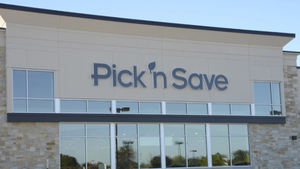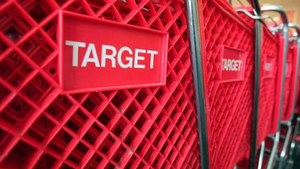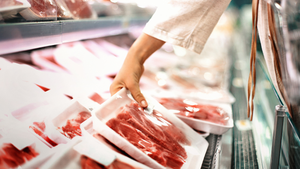UNFI Says Coronavirus Sparking Double-Digit Volumes
Distributor working hard to meet demand, but suppliers are still catching up, CEO says. The distributor is working hard to meet demand, but suppliers are still catching up, CEO says in second-quarter financial update.

The CEO of food distributor United Natural Foods Inc. (UNFI) compared customers stocking up amid the coronavirus scare in recent weeks to that of turkeys at Thanksgiving—only without the time the distributor and its suppliers typically have to prepare for big increases in volume.
“When you plan for Thanksgiving, you have six months to ramp up. You hire the people, you get the trucks. In the case of COVID-19, we did not have that luxury,” Steven Spinner said during a conference call with analysts this week.
As a result, the Providence, R.I.-based distributor is seeing its distribution centers working harder than ever to meet double-digit increases in demand from retail stores, although suppliers in affected categories are still catching up. Where it is it all going to lead? Spinner confessed he has no idea.
“When you look at year-over-year growth over the last two weeks, business is up double-digit versus prior year. That’s a big number. Whether that continues or not? I can’t even begin to tell you. Are we going to see more and more people leaving the restaurants and eating at home? That’s possible. Are consumers loading their pantries? That’s possible,” he said, according to a Sentieo transcript.
Spinner suggested the company’s focus on distributing natural foods that engender trust with shoppers was also providing a boost to demand, but he hesitated to predict where it would all go.
He said demand was up among 300 to 400 items, including frozen vegetables and fruits, general staples, canned goods, rices and nuts. “But of late, we’ve also seen a general lift across the balance of the stores as well,” he
Speaking during a review of the company’s second-quarter financials, Spinner said UNFI was not yet adjusting it fiscal-year sales projections as it gets the demand patterns into better perspective.
Q2 Results Support Scale Thesis
Financial results for UNFI’s fiscal second quarter, which ended Feb. 1, showed overall results that were better than some feared but, at the same time, influenced by a fast-changing industry, including the bankruptcies of three significant supply customers: Fairway Markets, Lucky’s Markets and Earth Fare. The financial effect of those shutdowns will be felt primarily in the months to come. However, Spinner reiterated a long-standing notion that their bankruptcies provided support for the distributor’s move to diversify with the 2018 acquisition of the conventional supplier Supervalu.
“The retail environment continues to be challenging, and the closing of stores by certain of our customers reflects that fact as well as validates UNFI’s strategic transaction 18 months ago,” Spinner said. “We recognized that independent natural format retailers would come under pressure from larger chain retailers with scale as consumers have broader access to these natural brands in supermarkets, mass and e-commerce.”
Quarterly sales of $6.1 billion—a 0.2% decline from the same period last year—reflected that. “It’s clear that our larger customers, who tend to have more differentiated formats, an omnichannel presence and the benefit of scale and diversification, are doing better than smaller customers,” Spinner said. “Wholesale sales to our top 100 customers were up 4.3%. For customers two through 100, the increase was 2.2%.” Top 100 customers represent about 75% of UNFI’s total volume.
Sales in UNFI’s “supernatural” channel—primarily Whole Foods—increased by 10% in the quarter and reflect both additional sales to existing units and new stores.
The company reported a quarterly net loss of $31 million and adjusted net earnings of 32 cents per share, which exceeded Wall Street estimates. Effects of the bankrupt customers figured in a downward adjustment to its fiscal-year guidance, with losses now expected in the range of $363 million to $395 million vs. a previous range of fiscal losses between $324 million and $353 million.
Cub Sale Update
UNFI is continuing with plans to sell the Cub Foods retail banner acquired as part of its Supervalu acquisition but said current conditions would likely result in some delays to an anticipated sale. “You don't have to be a rocket scientist to figure out that this is a really tough climate to sell retail,” Spinner said, insisting that Cub is “an incredibly strong banner,” with No. 1 market share in Minneapolis that “makes a lot of money [and] throws off a lot of cash. And so we’re just not going to give it away.”
In the meantime, the company is finalizing a sale of 15 Cub real estate properties that UNFI would then lease back. That deal is expected to net about $170 million and close before Aug. 1, the end of its fiscal year. UNFI intends to use proceeds of that transaction to pay down debt.
Read more about:
UNFIAbout the Author
You May Also Like






